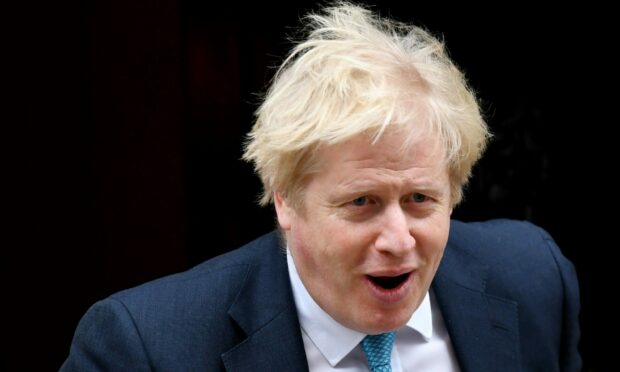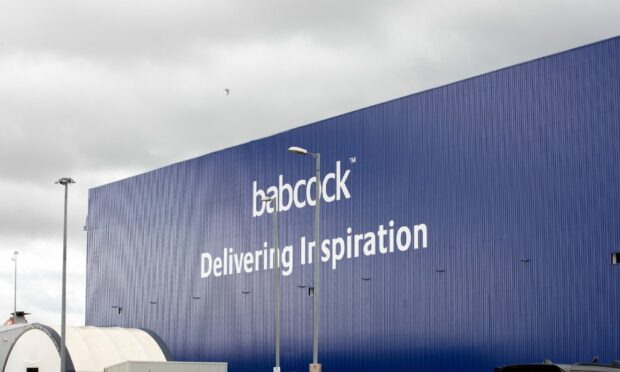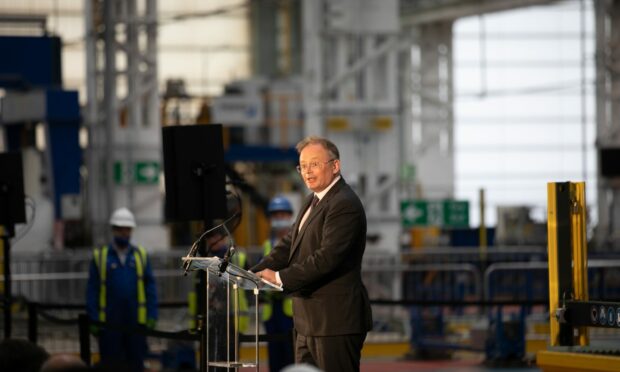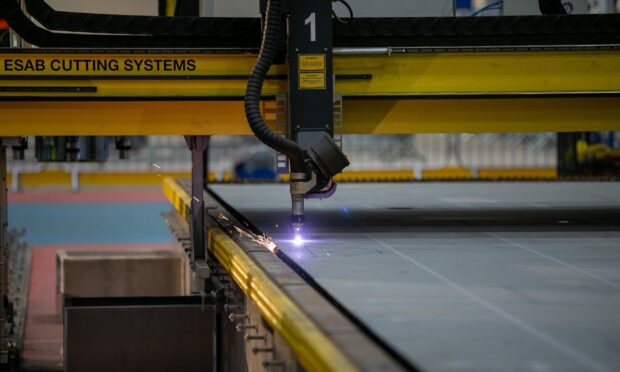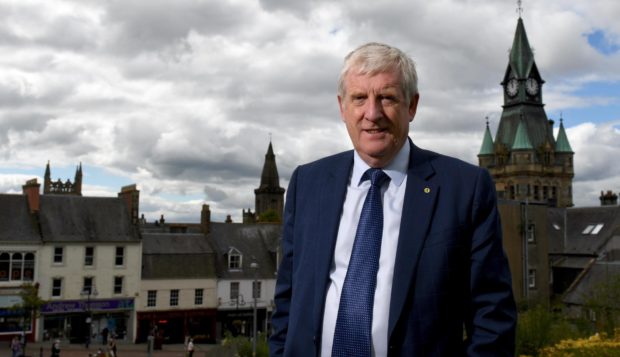Prime Minister Boris Johnson has hinted that Rosyth could be on track to be named as one of Scotland’s two “green freeports”.
He travelled to Babcock’s facilities at the Fife yard on Monday, just hours after it was announced that the Scottish and UK governments had finally reached a deal on the business-boosting tax relief scheme.
Speaking in an interview with us at Rosyth, the Conservative leader suggested it would be possible to make an “educated guess” about the likely location of the freeports.
The agreement between Holyrood and Westminster states that both governments would be given an “equal say” throughout the assessment and selection process.
A joint prospectus and assessment process is expected to be published next month, with winning bids announced over the summer.
But after touring Rosyth, Mr Johnson said: “We’re looking at what we’re doing with the Scottish Government with new freeports, and the cooperation there has been terrific.
‘Educated guess’
“I can’t tell you where they are going to be, but I guess you can sort of make an educated guess about it.
“And that will again have the potential to create tens of thousands of new jobs, and it is very, very exciting to see it.”
Babcock and Forth Ports are drawing up plans for a joint bid to base one of Scotland’s two green freeports at Rosyth on the Firth of Forth.
Other proposals could come from ports at Aberdeen, Peterhead, Cromarty Firth, Dundee and Grangemouth.
Speaking after the prime minister’s visit, Babcock chief executive David Lockwood admitted the trip represented a vote of confidence, although he said the pair did not discuss the freeport application.
He said: “It’s part of our job to build a groundswell, together with Forth Ports. Build a groundswell of support for what is going on here, because it is quite special.”
Mr Lockwood, who signalled that Babcock had expansion plans for its Rosyth yard, described the freeport status as similar to a “tax management scheme”.
He said: “I think the big advantage obviously is if you import-export, it’s a very beneficial tax environment.
“So for us, particularly for things like special purpose ships, survey ships and things, that will definitely make us more competitive.
“And a lot of people we compete against effectively operate with that already, so I think it will give us a much more level playing field.
“The other thing is it makes it attractive for supply chain to be close to you and inside the freeport.
“My gut feel is, if we get it right, what would happen is you would see a growth in technology companies, and export-orientated engineering companies, growing up around big companies like us. That’s my definition of success.
“In Scotland it will play a big role in helping SMEs make that very difficult transition from small start-up into substantive companies.
‘Big plans for the site’
He added: “We’ve got quite big plans for the site to expand, not just with ours but we’ve already got a couple of colleges on site.
“There’s plenty of infrastructure and stuff to effectively create tech parks, and I think that freeport status alongside could be very beneficial.”
Douglas Chapman, Dunfermline and West Fife SNP MP, said the freeport proposal could stimulate local jobs and investment.
“I understand the bidding process will begin in the spring, and I’m hopeful Rosyth will be considered as a potential home for one of these ports,” he said.
“I’ve said before that the west Fife coast is packed with potential, and that remains the case.
“I also consider that as a preparation for independence, we should develop an ambitious maritime sector which would see international shipping help boost Scottish exports, tourism and connectivity.
“All we need now is for businesses to recognise that potential and harness it through this innovative and exciting green freeport scheme.”
Radioactive waste removal
In the interview, we asked about work to decommission old nuclear submarines at Rosyth.
Seven vessels, which contain radioactive material, have languished for decades at the dockyard, awaiting a clean-up and dismantling by the Ministry of Defence (M0D).
They include HMS Dreadnought, the UK’s first nuclear- powered sub, which was retired from service in 1980.
Work began on the first submarine, Swiftsure, in 2016, involving removing radioactive waste, with a target of fully dismantling it by 2023.
Low-level radioactive waste has also been removed from a second submarine, Resolution, and the MoD said recently that progress was being made.
Mr Lockwood, who was chief executive of defence firm Cobham before joining Babcock in 2020, said: “Now we’ve actually got a programme that’s running that everybody is happy with, I think it just sort of ticks along, really.
“It is a very regulated business, because obviously it has got nuclear regulation, it has military regulation, it has got civil regulations.
“And quite rightly, because if anything went wrong the pollution risk would be awful, so you are obviously doing it in a very controlled fashion.
“But other than that it just kind of plods along in a very uneventful way, which is what you want. You want it to be uneventful.”
